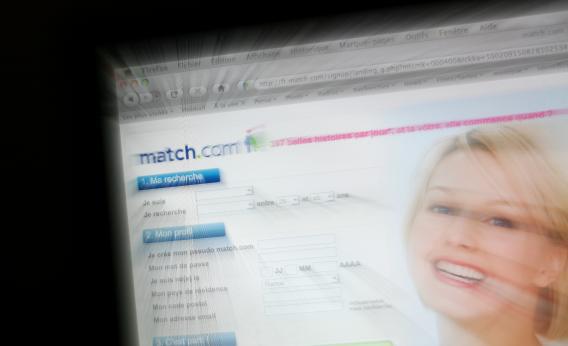Meet Jacob, a thirtysomething, single Portlander on the prowl. He describes himself as “average-looking.” Girlfriends have called him “lazy, aimless, and irresponsible with money.” He doesn’t care much about “a solid credit score,” “a 40-hour workweek,” or settling down. Thanks to online dating sites, Jacob pursues dates with “one or two very pretty, ambitious women a week.” He recently ended a two-year relationship with a 22-year-old; he’s currently juggling flings with “a paralegal and a lawyer who work at the same law firm, a naturopath, a pharmacist, and a chef.”
Jacob, as Atlantic writer Dan Slater frames him, is the embodiment of a new dating market where the allure of “online romance is threatening monogamy.” Whenever he meets another woman online, Jacob (not his real name) thinks: “This person could be exclusively for me, but so could the other two people I’m meeting this week.” Why have a real relationship, Slater asks, when there are so many attractive, successful partners waiting online?
I don’t know—maybe because we’re not all aimless and lazy thirtysomething straight dudes? Jacob may be meeting a buffet of sexy professionals and college students through his online dating profiles, but those women are meeting … Jacob. Slater doesn’t interview the paralegal, the lawyer, the naturopath, the pharmacist, the chef, or the twentysomething about their experiences dating online. They might speak to an alternate narrative of online dating: This Jacob could be exclusively for me, but so could the other two Jacobs I’m meeting this week—Oh, God. Why settle down when there are so many other unsuccessful, unattractive partners with whom you could make a horrific, lifelong mistake?
Alexis Madrigal has already administered a takedown of Slater’s central assertion that online dating has turned plugged-in yuppies into commitment-phobes. Marriage will live on, no matter how valiantly Jacob scams on women. I’m actually glad to finally hear from a Jacob, the male counterpoint to Kate Bolick’s own Atlantic examination of “All the Single Ladies” who end up paired, impermanently, with guys like him. The problem is that, unlike Bolick, whose story of singledom is intrinsically tied to her gender, Jacob scoots by in this story with no examination of his maleness. Slater relegates gender to a parenthetical: “Gender, too, may play a role.” Then, he fails to interview a single woman in the piece. Instead, he presents as evidence quotes from male online dating executives who say stuff like, “I often wonder whether matching you up with great people is getting so efficient, and the process so enjoyable, that marriage will become obsolete.”
Let us set aside the bizarre assertion that marriage has survived until now, as an institution, because it is so fun and that anything that is more fun threatens its very existence. Let us instead examine this notion that online dating is an “enjoyable” experience. My own stint dating online produced: one date with a guy who believes he is haunted by ghosts; three messages from a man who ended the series by writing, “P.S.: you’re so fucking hot i would lick the poop out of your butthole just to touch your ass”; an aggressive messenger I never met but have twice had to stealthily avoid when ducking into my local Trader Joe’s; bland drinks with perfectly OK dudes; many Jacobs.
No, online dating is not a joy. It is a horrific den of humanity that sometimes seems even less fun than actually being married. But it is kind of funny and interesting, mostly because it throws the offline dating economy into stark relief. Jacobs exist in real life, too, staring glaze-eyed at women a decade their junior from across the sports bar. Paging through all of their photos, assembled in one place, never made me feel like my world was teeming with compatible singles. Maybe that’s because I’m a woman, or maybe because, like most men and women who are not Jacob, I’m looking for a little more compatibility than “inexperienced person who will agree to watch sports and have sex with me.” Jacob may view online dating as an endless font of nubile young women to invite into his hovel (for a time), but I see it more as a reminder that a good person is hard to find, off or online. Either way, I think that most people are unlikely to conclude, “I like him, but wait—there are so many other quality men waiting for me … online.”
